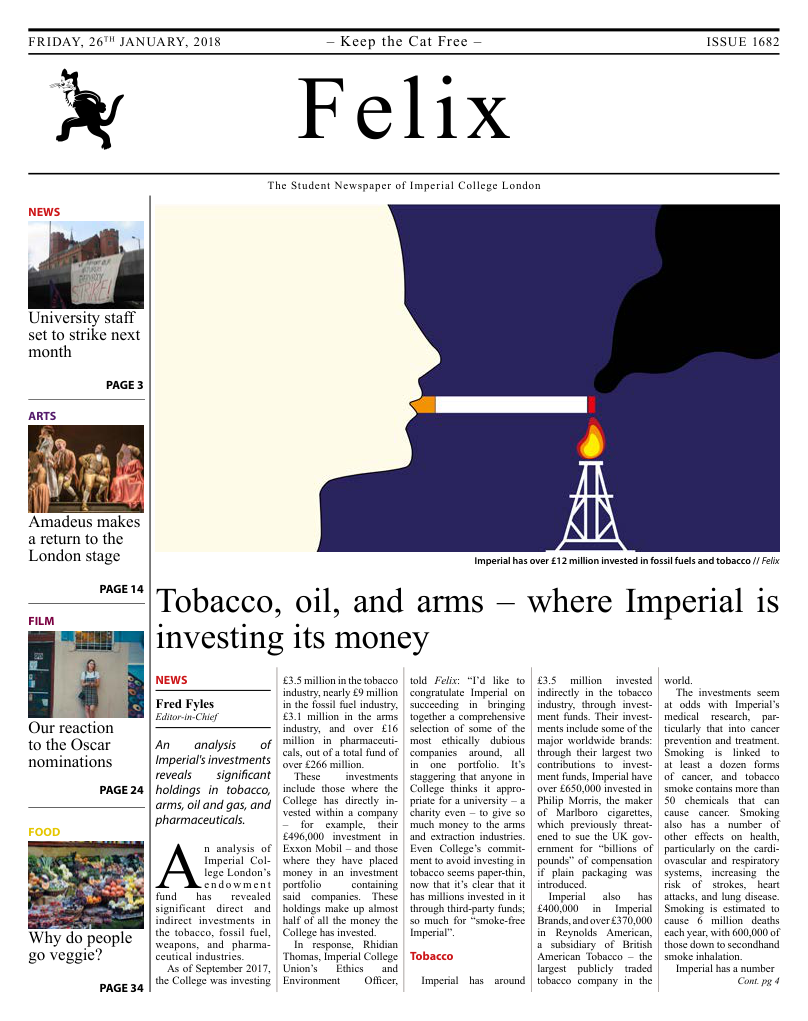Staff set to strike over planned pension pot changes as universities claim they can't afford to pay in
Members of the University and College Union are prepared to walk out over proposals that could slash their pensions.

Dozens of universities could be disrupted by strike action in a row over pensions.
Members of the University and College Union (UCU) voted in favour of industrial action; 88% backed a strike and 93% supported lesser action, such as refusing to reschedule classes or providing cover for colleagues. 58.5% of UCU members at Imperial voted, in line with the national average of 58%. The ballot was opened last November when Universities UK (UUK), the group representing UK universities, announced plans to reform pension plans. 61 universities could be hit by striking researchers, teaching staff, and lecturers.
Dr Michael McGarvey, president of Imperial College UCU, said in a statement: “We regret that strike action would disrupt courses and classes, but also think that it is in the interests of students to support our dispute. We believe that it is the highly irresponsible behaviour of the employers that has caused this situation.”
One UCU member who voted in favour of a strike told Felix: “In real terms, my pay is cut every year due to below-inflation pay increases; our pensions are being attacked for the third time in five years; and all the while the scandal of vice-chancellor pay continues.”
Most higher education institutes are part of the University Superannuation Scheme (USS). Under this defined benefit scheme, employees earning less than £55,550 receive a guaranteed retirement income based on the value of their pension pot and any investment returns. Due to rising costs, UUK intends to end the defined benefit scheme and switch all USS members to a defined contribution plan. This would link retirement income to the performance of the stock market, and means retirement income could decrease by 20-25%. (Although an analysis by Professor Michael Otsuka at the London School of Economics suggests employees may lose up to 60% of their pension by switching to the new scheme.)
A UUK spokeswoman said: “Without reform now, universities are likely to be forced to divert funding from research and teaching to fill a pensions funding gap.” The USS claims to have a funding deficit of £7.5 billion. UCU disputes these figures. Universities minister Sam Gyimah wrote to fellow MP Ellie Reeves, saying: “An independent report commissioned by the USS concluded that universities with USS schemes would remain strong and stable for at least the next 30 years.”
Felix’s UCU source said: “The large profits made by UK universities show the money is there, they are just unwilling to spend it on retaining high quality staff.”
“Many of my colleagues have discussed leaving academia because the pay difference between academia and industry is now so great. I could easily earn double what I do now if I went into industry,” they added.
Times Higher Education has reported the reluctance of several universities to continue paying these increasing costs. Imperial is one of those universities supporting the “necessary” move to defined contribution plans, with Imperial provost James Stirling stating the USS “is not likely to be sustainable”. In 2015/16, Imperial paid £80 million into pension funds. Its profit for the same time period was £78 million. Since 2015, Imperial has reduced staff expenditure (i.e. salary and pensions) from 55% to 53%.
When strike proposals were first floated last November, Dr McGarvey said: “Imperial has spent nearly £500 million of its own money over the last three years on its estate. The employers cannot plead poverty, and any claim that fees will have to be raised to pay for staff pensions has no basis in fact.”
UCU general secretary Sally Hunt said the USS “already offers fewer benefits than other schemes available in universities, and the proposals would make matters worse”. She previously criticised the ending of the USS as “the worst proposal I have received in 20 years of representing staff”.









